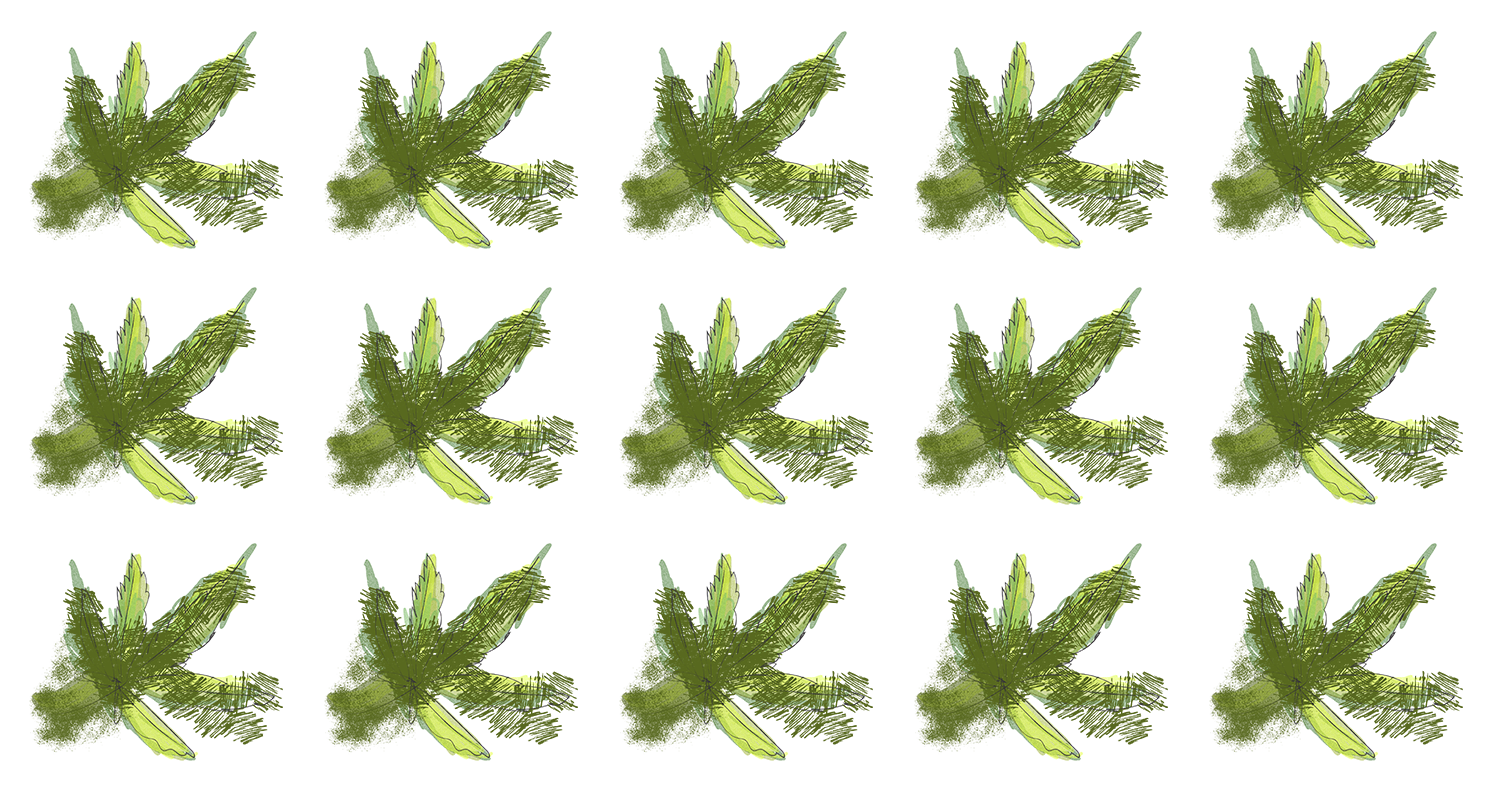
A Nation at the Exit
“Oh, it’s so good!” Vitalik says breathing in deeply. “Swiss air! Guys, it’s great that you’ve come. You’re going to love it!”
Vitalik throws his head back, raises his arms, stretches out his legs, and makes it known by his pose that he is the king of the local cannabis plantations, a desperate romantic, and the chief worker here. He will freeze in this position for the next couple of weeks, from time to time singing along to a Grigory Leps track that confidently assures that “the best day ever came by yesterday.”
Vitalik has his own business in Ukraine, but this is the second time he has come here, not far from the Swiss town of Fribourg, to the marijuana plantation that is grown for medical and cosmetic purposes. He says he comes because he loves everything Swiss: his boss, the trailer he lives in, marijuana, and the quick cash.
But Earlier…
The asphalt lot near the ice rink serves as a bus station, a waiting room, and a football field at the same time. That’s where I was brought along with four men right after we crossed the EU border with some fake wedding invitations.
Local Francophone teenagers are kicking a football around near the rink. While the young athletes in jeans and with suckers stuck between their teeth whisper about our appearance, our boss André drives right up to the rink in his Renault Kangoo with its spacious trunk. Which is what we climbed into. We, our suitcases, warm blankets, and air mattresses.
Our apartment is a storeroom paneled with plywood. There is one bed, a dresser with a plasma TV, a dismantled bunk bed, and some room on the floor for mattresses. There’s also a drill, a bottle of vodka, and some rugs thrown down carelessly. I will share this room with six grown men.
“What are you staring at? Put this bed together yourselves; we didn’t have time,” a fifty-year-old man says indignantly. He speaks without taking a lit cigarette out of his mouth.
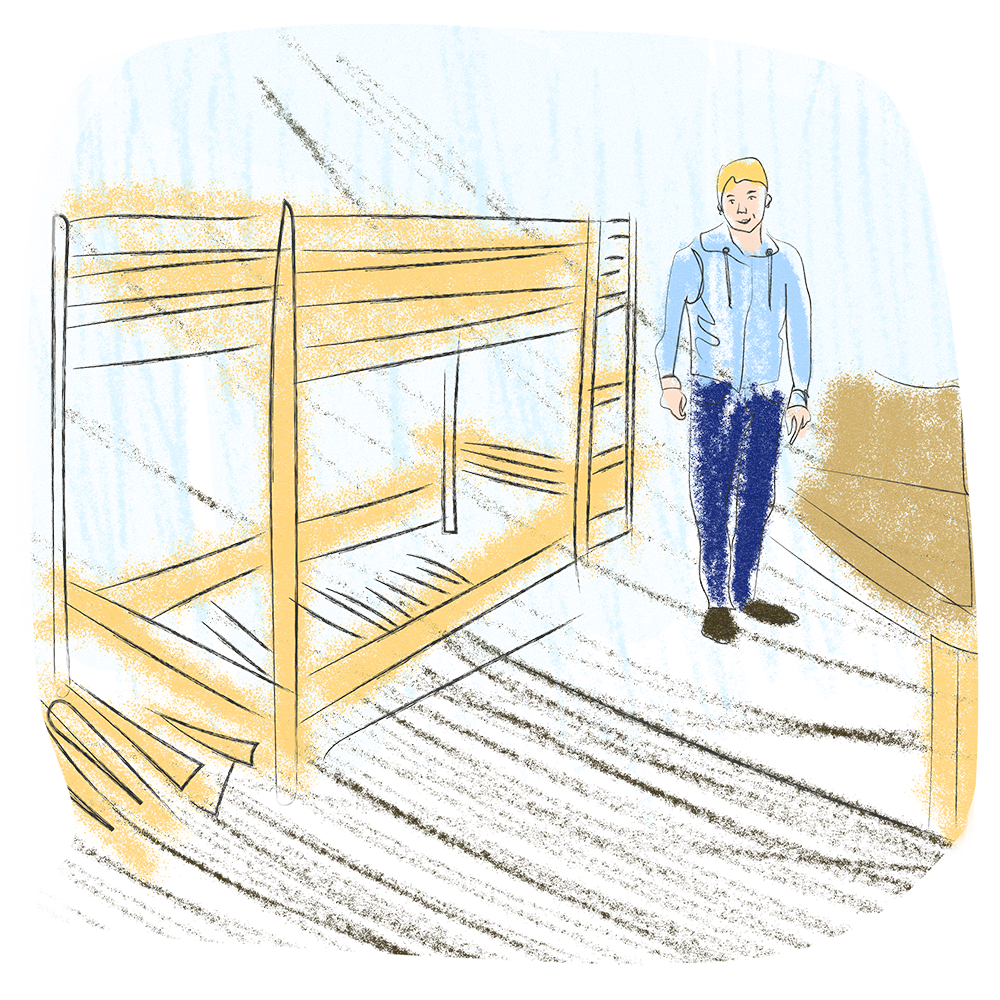
“Well, we’re not very good at this,” I reply awkwardly.
“So learn! It’s all elementary!”
Eventually, we do manage to assemble the bed with the help of duct tape and Ukrainian resourcefulness. “André would never have come up with this,” a man of about forty-five rejoices while wiping his hands on his track pants. But I’m slightly afraid—I’m the one who gets the top bunk.
Before we left Ukraine, they promised us we’d have a warm shower. After we got settled, it became clear we should not have taken their words at face value. The experimental shower in the trailer was rigged up by Vitalik. The water (which was the temperature of the river) lasted long enough for you to wet your body and reach for the shower gel. What a great opportunity for hygiene after 35 hours on the road.
It’s night already and they’ve announced quiet hours in our hangar.
It would be hard to call it quiet, though. My quartet of roommates on the air mattresses was performing a symphony of snoring that kept me up for long time. One of the performers is Zakhar, the guy who called me a month ago saying, “Alina, you’ve got 15 minutes to think. Let’s go harvest weed in Switzerland. Ttravel’s covered and they pay 33 bucks a day. I don’t know all the terms, but who really cares?”
He’s from the Luhansk region, but lives in Kyiv. He studied at a conservatory and plays the piano. He dreams of becoming a film director and making quality movies. But for now he hates any kind of work and bad food. He makes money playing poker online and only has to pay utilities on the apartment he rents in the center of the capital. It would seem his art of dodging isn’t for everyone. He says he’s come here to earn money for a laptop and start doing something at last.
Having evaluated the working conditions, he promises himself this is the last time he’ll do something like this, because he is “a regular person, not a slave”.
The Start
“Good morning! Have whatever you can find for breakfast, drink some coffee, and let’s go to the field!”
The kitchen is packed. A teakettle sprays boiling water through all its holes. It smells like an early morning cafeteria at a train station somewhere near Khmelnytskyi, but the cheerful workers make the atmosphere pleasant. The voice of Mykola Mozhovy come from some speakers, “the day passes, the night passes.” Fresh workers smile as they swallow their boiled eggs with soy sauce, hot dogs, and slices of cheap bread.
The breakfast options are canned tuna, toast, half-cooked oatmeal, or boiled eggs with instant noodles, depending on what you manage to get your hands on. All you want afterwards is to go back to bed and attempt to start the day over.
But no. Conversation, stories, jokes. We finish off our second cups of coffee and head to the field at a leisurely pace. We carry shears and something akin to those checkered bags from home. It takes us a few minutes to get to the plantation. The field is on a hill. Some of the plants are as high as our shoulders, about five feet tall. The flowers, that is the fruit of the plant, are more than abundant this year.
Our task is to fight valiantly with the branches and leaves until we get the trimmed flowers.
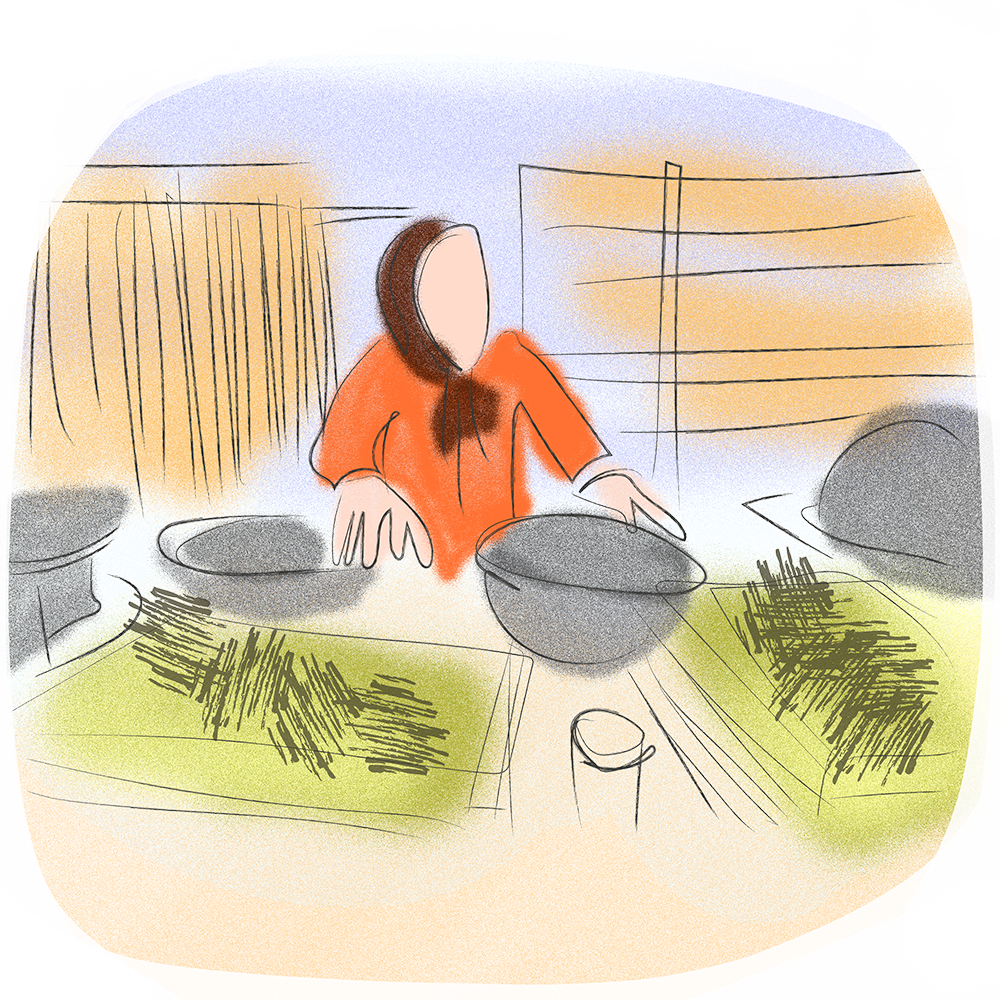
How It Works
The first team in this human conveyor belt are the “alpinists,” who deliver the plants from the field and right to the floor of a spacious office that looks like a hangar.
The second team, the “pickers,” has been waiting for delivery. They roll up their sleeves and get ready for a botanical battle. The team of pickers has to tear off the branches very quickly and clean them, throwing anything that’s not a twig or rotten into boxes. This duel is a monotonous mechanical process that requires strong hands.
Then the third team, the “drummers,” grabs the boxes and processes their contents on special drums. There are four of them for eight machines. They all stand in one place and trace perfect circles in the air with their hands, simultaneously and slowly. Sometimes the motions resemble relaxed swimming in the waters of the Dnister. This totally needless job that could be easily automated is the last and final stage of our living conveyor belt.
The trimmed flowers are thrown onto a tarp (to dry in the sun), and then they’re off into five-kilogram barrels. A full barrel goes for $5000 to $7500.
The last stage in the production, but not the least, is the team of “barbers.” They’re given select branches that are bending under the weight of the flowers. With the help of special equipment, they remove all the excess leaves. This team has a caste-like division of labor: two privileged individuals sit in the sun and operate the machine without exerting themselves, while the younger and more active ones stand around a long table and trim the branches using hand-held tools that vibrate heavily and sometimes cut their gloves.
An integral part of the workflow is control! When the work is really humming, everyone’s doing their job, the flowers fill the empty barrels, everything in the barn is all covered in dust, and the noise of jokes and equipment is can be heard, our boss André is still not happy.
Yes, Sir!
“Sergei, what the f*ck is this? What is this, I’m asking you?”
Almost every one of our boss’s daily inspections of the working class begins with this phrase.
André is about 45 years old. He was born in the capital of Hollywood movies and American gangs, Los Angeles, before he moved to Switzerland with his mother, and later even studied in Moscow. Now he lives on the shore of Lake Geneva, travels, sometimes hangs out in Kyiv clubs, and carries a gold card from Privatbank. Andre speaks Russian very well with a hardly noticeable American accent; at this particular time he’s trying to master all intricacies of Russian curse words.
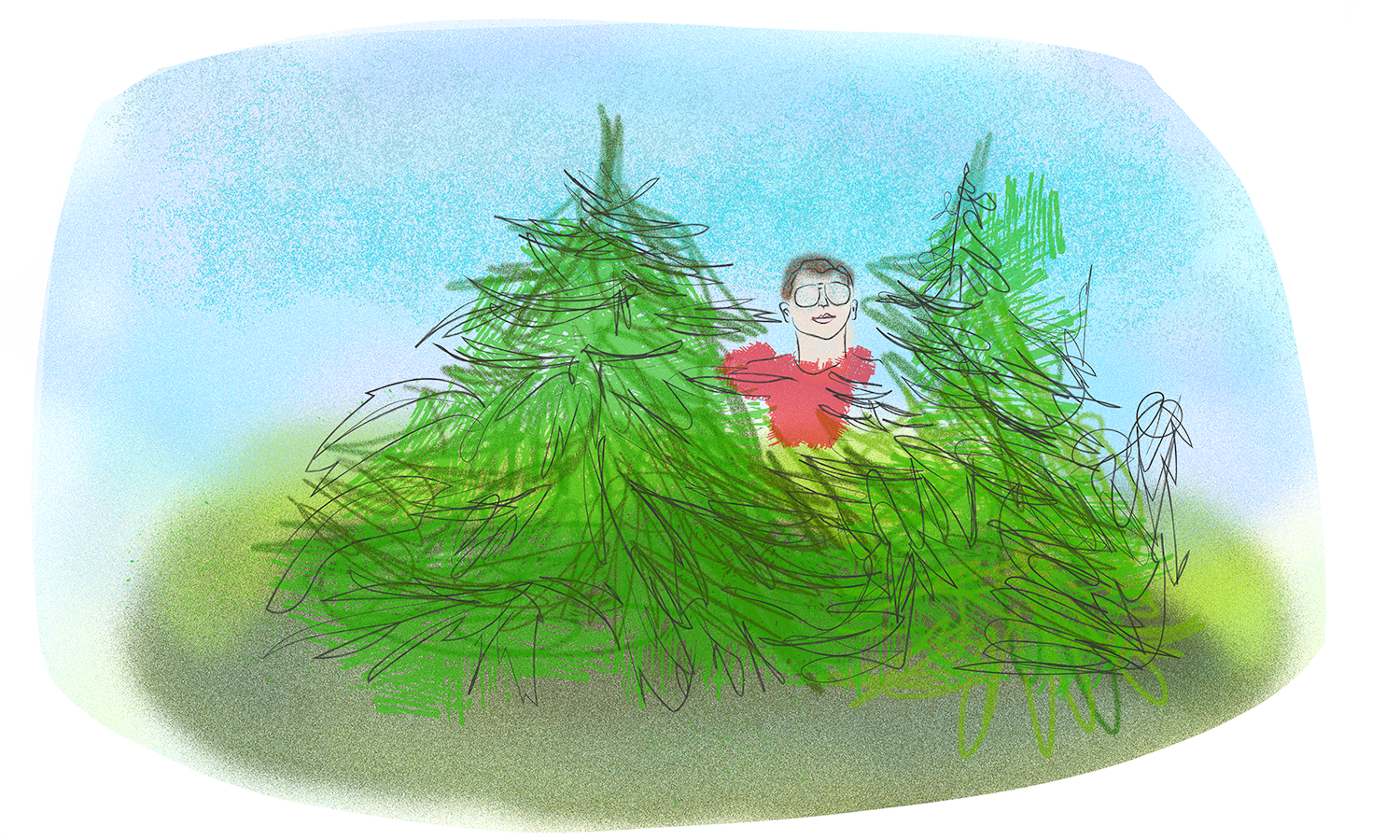
This is only the second year of his cannabis business, and this fact probably excuses some of the mistakes in his calculations. But words like “shit” and “get the f*ck to work” have absolutely no influence on his employees’ performance. André hasn’t the faintest idea what work flow automation, decent living conditions, acceptable salaries, time management, or effective training for beginners are.
He has shifted absolutely all responsibility for the harvest, processing, and storage onto his multi-purpose Ukrainian employees who, for some reason, do not want to work as well as he’d like.
André shows up every day, having first bought himself some expensive food, and when the workday ends, he gets into his battered Renault and drives off to normal living conditions—his home.
Who Are These People?
“Andriusha, I’m going to tell you right away that I’m not going to work for eleven hours. I’m taking an eight-hour work day, understood?” in calling André Andriusha, one of women here has immediately set her own rules.
She’s short and has a bright jacket, unfiltered cigarettes, and an enormous smile. In her late forties, she’s doubtless the life and soul of many groups of men. Tatiana makes it clear from the start: we’ve been joined by a character who jokes around, speaks loudly, laughs often, and wants sex, vodka, weed, and a warm bed more than anything else. Tatiana has brought three liters of grain alcohol and homemade jam. She calls herself a “landscape designer” and has a husband she has left at home, because “What do I need him here for, I tell you, when there are so many handsome men.”
This little keeper of team spirit possesses an infinite reserve of stories, jokes, and crazy ideas.
While Tatiana is negotiating with our boss, I take my place on Team Barber right beside my new friend Vitalik and his portable speaker. Leps has already started warming up his voice in the hangar; Vitalik is clenches his fists and closes his eyes dramatically, exclaiming “I aaaaaaam as happy as can be.”
He has an eleven-year-old son who plays sports and whom his dad wants to “promote to hockey.” On top of that, he has an apartment in the capital that looks out on the Motherland Monument and a marijuana plant he asked his concierge to take care of while he’s gone. He’s only got as three songs on his phone. Vitalik often philosophizes in tune with Mavrin’s “Volnaia ptitsa,” on life, call girls, the wretched Ukrainian reality and politicians who only want to make a fool of you, about our uncouth people incapable of understanding that there is a better life and it’s in Switzerland.
I blatantly hint that I have music on my phone as well, and it is time to give Leps a break. To everyone else’s surprise, Vitalik lets me enter his kingdom and change the playlist after all.
The songs of Pink Floyd, Bob Dylan, and Jackson C. Frank asking us not to look back and Bob Marley who sings about freedom time make the perfect addition to our hangar dystopia. The cherry on top is John Lennon with “Imagine” and “God.”
“So we’ve got the seventies here,” Vitalik tries to show off his expertise. “What do the words ‘dont beeleev in gad’ mean?”
At that moment, a gang of newcomers shoots us a look; they have obviously reacted instinctively to the word “gad.”
Yana, Zheka and Liokha from Kyiv agreed to work without knowing they were going to be dealing with cannabis. Yana and Zheka are married; one is a construction worker and the other a hairdresser with a complicated life story. “We’ve been written about in newspapers,” says Zheka, who was the main character of these stories. He used to be addicted to drugs and has served two jail sentences (for being violent and “literally destroying his life”); he’s also had cirrhosis and a bunch of other serious ailments. Now Zheka is absolutely happy—he believes in God, has a loving wife and a good job as a construction worker (he says he makes more at home than here). He works hard, sometimes jokes around, almost never argues, and sticks to his small group consisting of his wife and his friend Liokha.
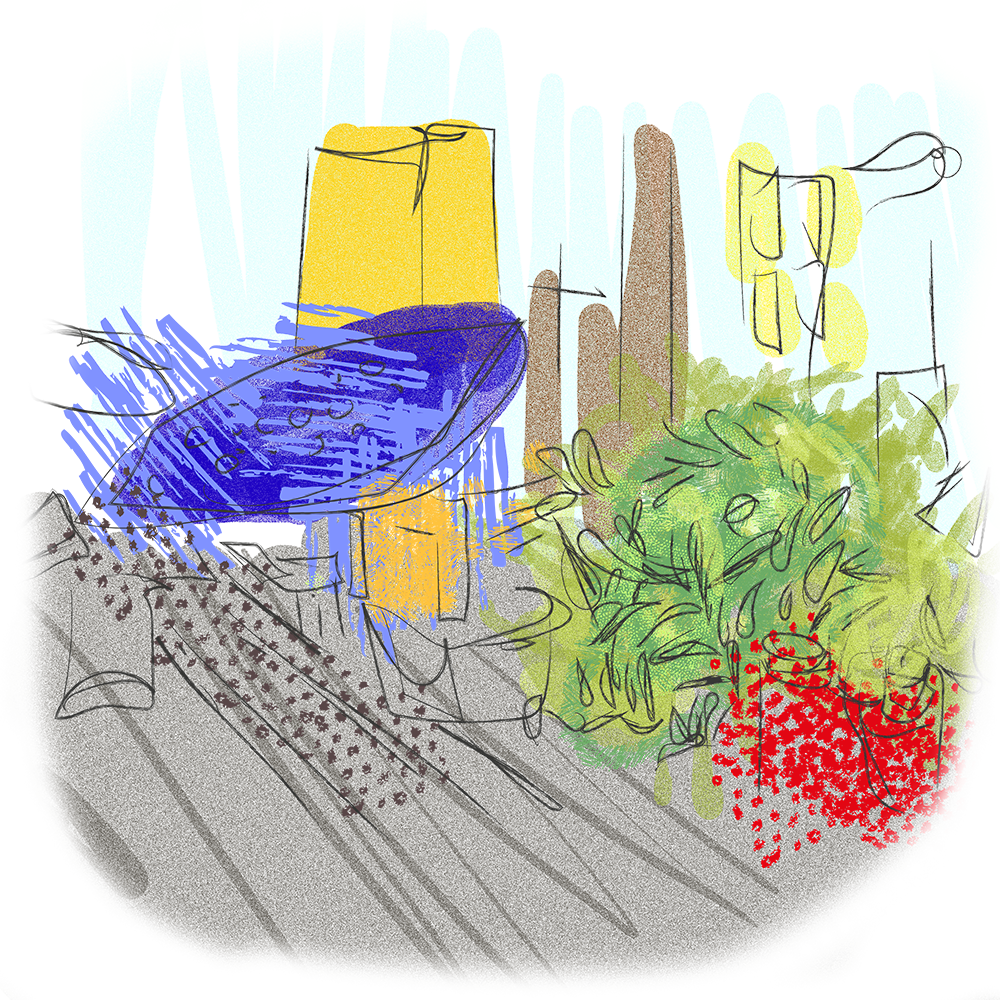
Liokha’s life has been similar, though he has never been in the newspaper. Only the “Lësha” tattoo on his finger hints at of his criminal past. He likes to rap, be sarcastic, and sometimes talk at length about God and his work with children in his religious community. He also likes talking about adventures from his past when their gang used to “drink the bar dry, guzzling all the absinthe and sambuca”.
Now this law-abiding group of friends lives in the town of Vyshneve near Kyiv. They came to work here not so much to earn money as to see Switzerland. They had even had to take vacation time in Ukraine to do it. They traveled together with Tatiana who got drunk as soon as they hit Przemyśl and, as they said, was embarrassing them and freaking them out the whole way. They don’t like that they have to harvest marijuana here, so while they work, they think about how they’ll explain this at church. Here, they also have to quash occasional aggressive debates on religion, alcohol, and cigarettes, smile uneasily at old Soviet jokes, and keep their distance from their overly active coworkers in order to avoid needless troubles.
The work goes crazily fast, and I’m slowly getting used to the mechanical motions, my tasks, the senseless conversations about treason and victory, the base jokes, and my new face with its red allergic rash.
I am kneeling next to marijuana plants, rhythmically picking flowers when I suddenly realize the OUN anthem, “We Were Born in a Great Hour,” is playing from a phone at this very moment. My expression obviously betrays my surprise and shock, for Sasha, whom we’ve nicknamed “Krymnash,” just then starts praising my Ukrainian. I’m the only one who speaks it here.
“I only listen to Ukrainian music—how could I not?” Sasha says suddenly as if he’s making excuses, having switched to the state language. “My wife and I went to some patriotic festivals. Actually, I support everything Ukrainian.”
Sasha was born in Kyiv and went to a Russian school. He worked at a plant, but now he takes trips abroad to work and sometimes helps soldiers in the ATO. He likes being in charge, gossiping about his colleagues behind their backs, and playing hooky. He also loves his wife, Serhiy Zhadan, vodka, and debating with people who “don’t understand a thing.” Later on, Sasha will have a more lucrative role at work and won’t be a member of the pickers team anymore. However, he will still be a colorful personality at our evening feasts of watered-down grain alcohol and marmalade from Ukraine.
From time to time, other “political analysts” join in various discussion about the day-to-day reality in our country, blaming everything on Jews and reducing the coming presidential elections to hopelessness.
The grumbling in our stomachs gets even louder with the songs about the red viburnum bush. Our neophyte cook Yulia enters the hangar.
“Guys, I’ll be honest with you, I’ve never cooked before. So, please, excuse me if anything is wrong,” Yulia smiles, blinking her long stick-on eyelashes and drying her hands on her brand-new velour tracksuit.
Yulia is 22. She lives in Kyiv, dates “darling André” and, right now, is learning how to cook in big pots. She likes watching Russian TV shows and listening to pop-rock and rap. She has quickly learned to call overcooked pasta served with the cheapest ground beef “bolognese” and a simple bowl of soup “lunch.” Estimating the amount of food needed for fifteen people who working eleven-hour days is obviously not Yulia’s forte. It drives her crazy that the bread vanishes so quickly and the sweets are eaten up the moment they appear. However, she’s more tolerant of the mouse that has taken up residence in the kitchen: “She is pregnant, and her little pink ears are so cute,” she says while plopping oatmeal on the floor.
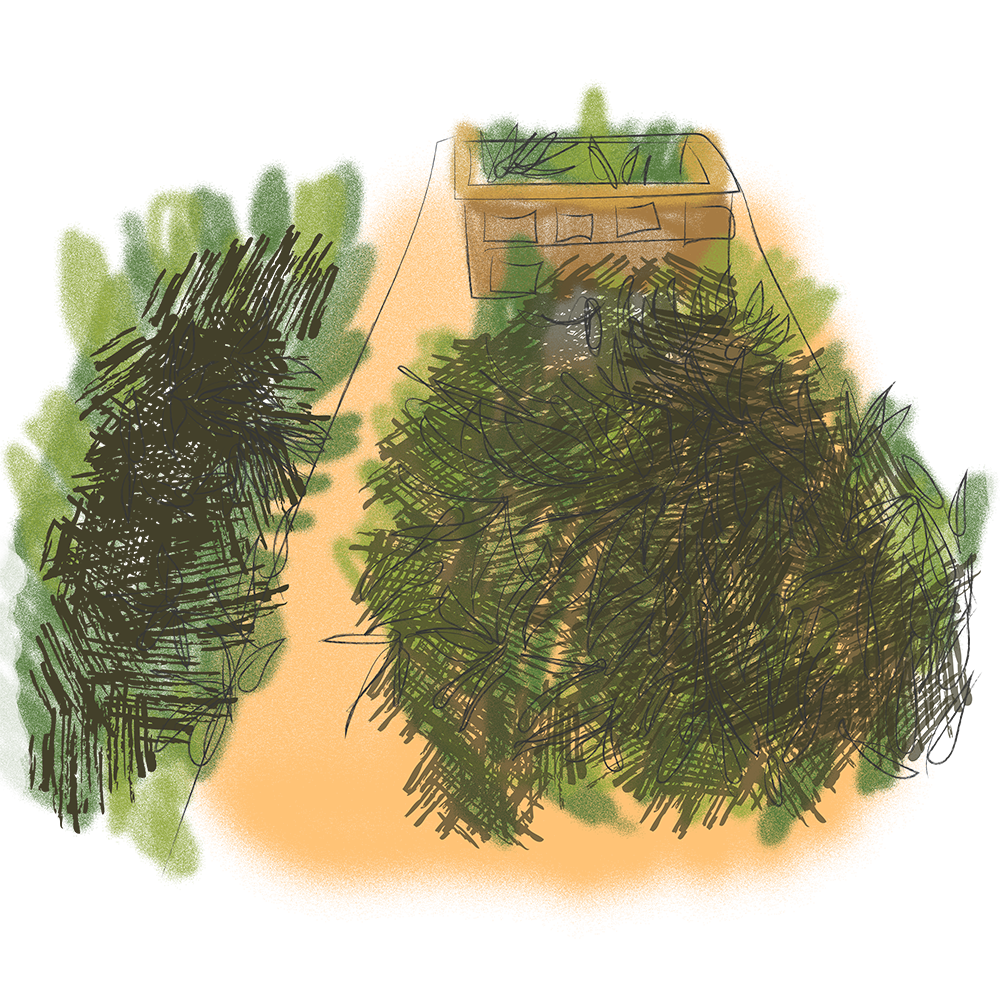
Lunch is an hour-long break after which it is extremely difficult to get back to work. The team rests. Someone smokes hand-rolled cigarettes made of newspaper and used filters; someone else takes an IQCS—a device for smoking cigarettes without the smell—out of his pocket.
“Let the little lady take a drag?” Tatiana asks.
Vlad with the IQOS in his hand and Nika with the iPhone are Generation Z Kyivans. They came here to earn some money, have some fun, and have an interesting adventure. Soon they too will encroach on the right to control the speaker, and their Russian rap— Vinnik and Meladze—will be welcomed by the group. Vlad works as a taxi driver while Nika happens to be searching for where to buy a master’s degree right now.
He hesitatingly hands Tatiana his device and already knows he won’t ever make this mistake again.
“It’s like smoking hay instead of tobacco. Gross,” Tatiana returns the IQOS dissatisfied. “Let me roll you a normal cigarette.”
Through the Looking Glass
There’s no stability in this work; your place in the assembly line changes almost daily.
We sometimes listened to Nietzsche on audiobook while I picked buds with the pickers. Sometimes it was Griboedov, and I was on the barbers’ team. Sometimes Radiohead was playing, and I laughed helplessly on the team of drummers.
One time we listened to Beethoven and Brahms, then Vremya i Steklo and FACE, and then part two of Nietzsche’s book when someone shouted out loud:
“What’s that? Did someone turn on the radio?”
“Quiet down! We’re trying to listen to Freud here,” Vitalik corrected.
My imagination automatically pictures scenes of dystopia, where the hangar is a small Ukrainian state with all its various mindsets, laws to be ignored, and interesting personalities who are very good at adjusting themselves to the bad conditions thrust upon them from above.
The Theater of the Absurd and dramas augment our evenings of contrasts.
The kitchen is the place where all workers meet and make peace. There’s almost no food here until morning, not even for the mice.
A typical scene: an old vodka bottle filled with diluted grain alcohol, Tatiana’s marmalade, four men standing around the table staring at the screen of Sasha’s phone, which plays Zhadan and the Dogs in Space.
“Sasha, turn that shit off!”
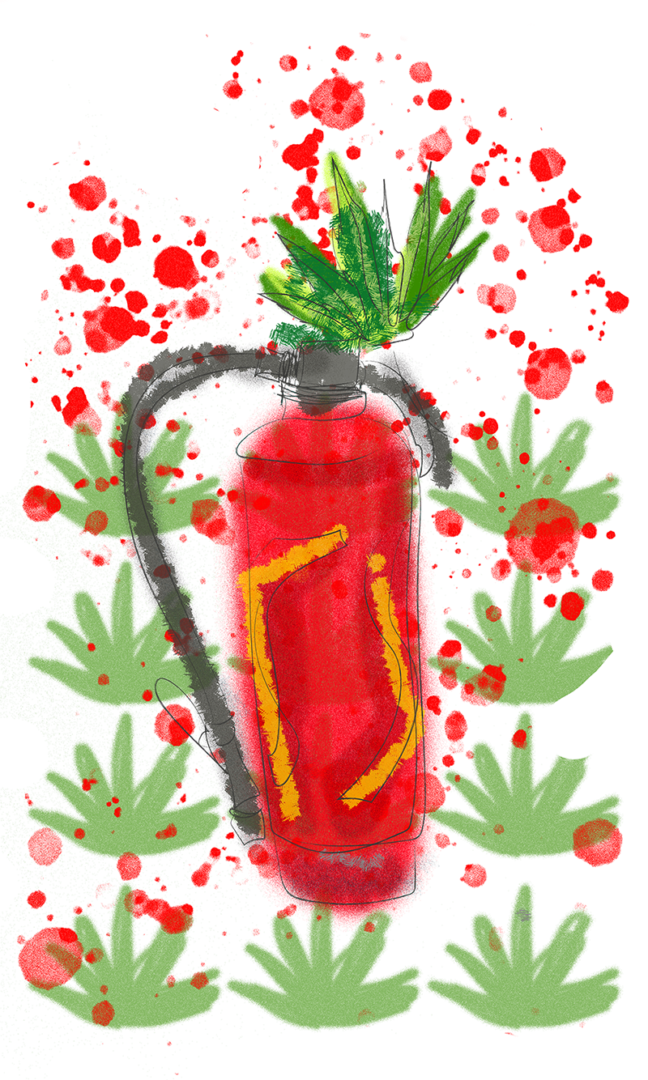
“Oh, come on, they’re great. You don’t understand anything!”
Some people love spending the evenings here over loud debates, others come to fry potatoes, bake apples, drink tea with toasts, or just play cards. All this goes on simultaneously in a 100-square foot kitchen.
From the outside, everything looks friendly and genuine, like we are actually a good team united by the desire to earn some money, eat some good food, and go home. But in fact, we have been divided into friends, foes, and the religious since day three. After that came slander, stink eyes, reproaches, and even a small fight. The main reason for this is four independent candidates vying for the post of foreman. A position that doesn’t exist here! The cooperative and friendly team that during the day strives to trim as many buds as possible, by evening turns into a 7th-grade class with a substitute teacher.
Scene Change
In a few days we get some new details about our duties. Moudon enters the stage. It is a city people could be sent to both literally and figuratively. Moudon is situated 25 kilometers from our village. It has a supermarket, an 18th-century Gothic church, a brothel, some old dairies, and warehouses where André has rented a space to dry the weed in. That’s where our team’s second office is.
“It’s a total shithole! It’s 85-percent humidity, it’s hot, hard to breath, and everything’s covered in pot. It’s all work and no rest,” Sasha, who has been there the longest and of his own volition, tries to talk me out of going. “It’s no place for a girl!”
I don’t know if it was curiosity, feminine instinct, or simply the fact that I love to suffer, but I volunteered to go the next day with Sasha.
The room looks like a good installation at the PinchukArtCentre. Stalks of marijuana form curtains over everything. The floor is covered with bud and empty beer cans—a bonus from our boss. Everything was built and set up by our experts with their “magic touch.” Even though I’d never used a drill, right then, holding one in my hands, I was willing to redo everything myself just to not have to look at this synthesis of total lack of responsibility.
I did learn to use a drill, standing on one leg at the end of a sawhorse hanging cannabis stems from the ceiling. I also learned to sense the humidity and temperature.
Working here you start missing the team spirit of those enthusiastic Ukrainians.
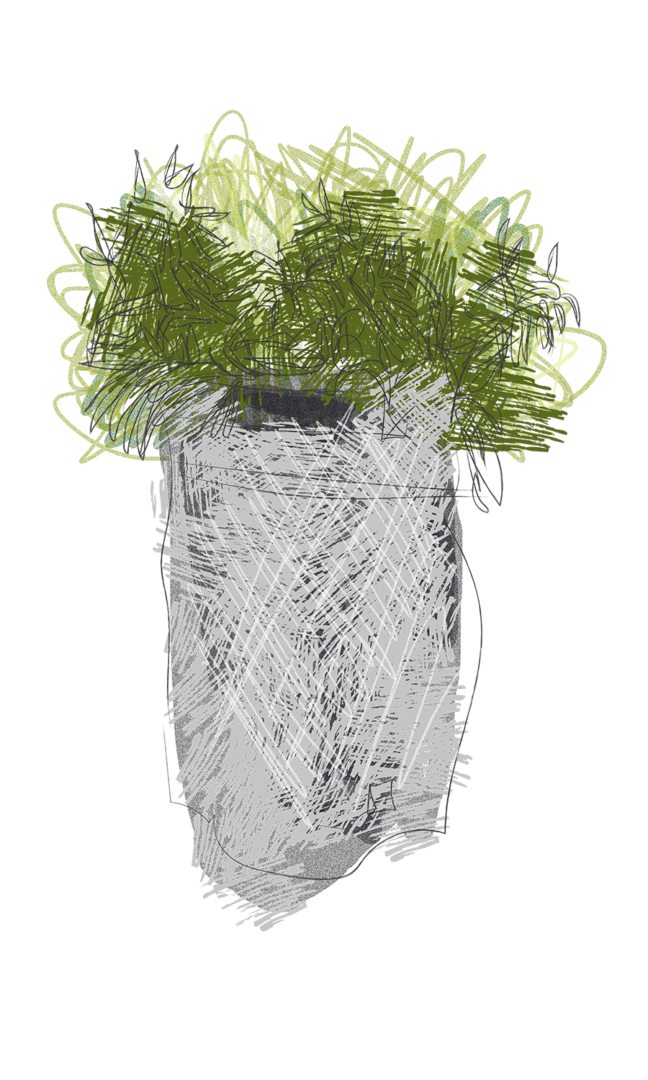
The End
On about the tenth day of work I feel a burning pain in my elbows. I have already gotten used to the nagging pain in my back and Zakhar’s whining, the shortage of vitamins or proper food. I’m freezing cold every morning and don’t react to the symphony of snoring at night anymore. I hate boiled eggs and never turn on my music now.
I’m used to Tatiana coming into the bathroom when I’m showering “just to tinkle.” Vitalik tries to wheedle me into a workplace fling, André gets greedier and greedier, Yulia puts less and less effort into cooking, and the weather gets worse every day. We are working in turbo mode; we have two weeks left for harvesting before snow is in the forecast.
By the third week my phone is broken, my sneakers are held together with duct tape, my arms are jacked, and my elbows hurt. Zakhar has been making a plan to escape back to Ukraine in case we do not get paid.
One morning, André comes in saying, “You wanted to leave earlier, didn’t you? You can go tomorrow.” We’re not sure if he’s giving us permission to go or firing us.
The day—our last of spiritual slavery and physical labor—was wonderful. We felt the joy of life again. We worked at full steam, smiling and gossiping, dancing while we spun the drums, singing while we cut the branches. Then we took pictures, exchanged phone numbers, and lied about how great it was to meet each other just like it was the last day of summer camp.
We made a plan to drink cheap Italian boxed wine and eat Camembert that evening. A party in the cramped trailer on wheels listening to Leps whom we hoped to never hear again. Tatiana’s stories I will never forget.
Later we would spend 38 hours getting to Lviv, but for now we are hugging everyone goodbye. I grab a bag with hot dogs and bread, Zakhar grabs our buddy Sergei who was suddenly fired two hours before our departure. The three of us climb into the Renault’s dirty trunk and leave our hangar ghetto with great relief, a smile, and the question: “What was all that?”
Zakhar returns to Ukraine with a rather vague vision of his future. What to do and where to go are questions he still hasn’t found the answers to. He knows only where he will not go.
“I will never work under those conditions again in my life,” Zakhar tells me on the bus. “It’s so good it is all is over.”
From Przemyśl we take a marshrutka to the pedestrian border, and from there an electric train home.
A New Start
We are greeted by our native Cyrillic alphabet on billboards and chatty, friendly passengers at the hard to notice State Border train station.
Three respectable middle-aged men are drinking vodka on the last benches of the old State Border–Lviv electric train car. An “activist” one jumps up in front of his innocent companion, saying that Russkies should be hacked to pieces and the yids like him should be thrown to the frontlines. Ukraine above all! And if we had the UPA, it would be “sayonara, shitty Russkies.” While the two of them try to reach a consensus, the third man raises a bottle and gets to his feet saying, “Let’s drink to the motherland, although she’s a freak.” Riotous laughter fill the car.
“Welcome fucking home,” a sullen Zakhar summarizes while trying to fall asleep on the train’s wooden bench.
But I’m smile and feel happy to return to my country which I understand, know, and want to change.
Translated by Ali Kinsella.
[This publication was created with support of the Royal Norwegian Embassy in Ukraine. The views and opinions expressed in this publication are those of the authors and do not necessarily reflect the official position of the Norwegian government].
Have read to the end! What's next?
Next is a small request.
Building media in Ukraine is not an easy task. It requires special experience, knowledge and special resources. Literary reportage is also one of the most expensive genres of journalism. That's why we need your support.
We have no investors or "friendly politicians" - we’ve always been independent. The only dependence we would like to have is dependence on educated and caring readers. We invite you to support us on Patreon, so we could create more valuable things with your help.
Reports130
More






